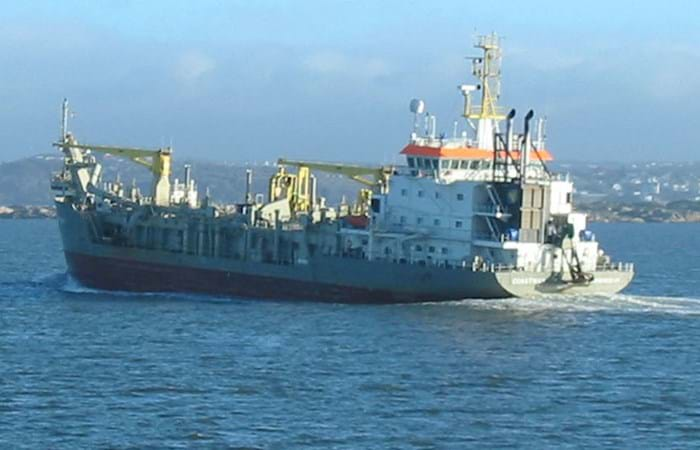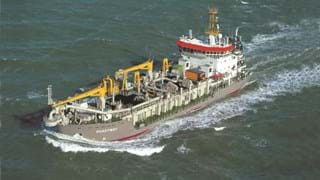Gothenburg turns around some 34 million tons of cargo annually, including 700,000 TEU (containers), and is unique in the region. With regard to the variety and frequency of calls from intercontinental liner trade the port is outstanding in Sweden. The port can be reached from the sea via two different channels: Torshamnen Fairway and Böttö Fairway. From a navigational point of view both channels needed to be deepened and widened at a number of places. Thus there were two good reasons to enhance the fairways: securing the port’s future as the premier port for liner trade and creating safer navigation. This resulted into a major dredging contract which was awarded in June 2002 to Boskalis Westminster Dredging Company.
The contract called for deepening/widening of the outer part of Torshamnen channel to about 20.5 meter water depth as the Böttö channel and inner part of Torshamnen channel had to be deepened to about 14.2 meter waterdepth. In total this project involved the removal of a gross quantity of 12 million m3 of soft to stiff clay which material had to be dumped into a designated disposal area at sea. Moreover 375,000 m3 of solid rock had to be drilled and blasted. The quantity of one million m3 removed broken rock was partly dumped at sea, partly used for filling works and partly used to create an artificial reef (to stimulate fish life). An uncertain factor was the possible presence of boulder clay on top of the rock. Strict environmental monitoring was part of the contract specifications.

